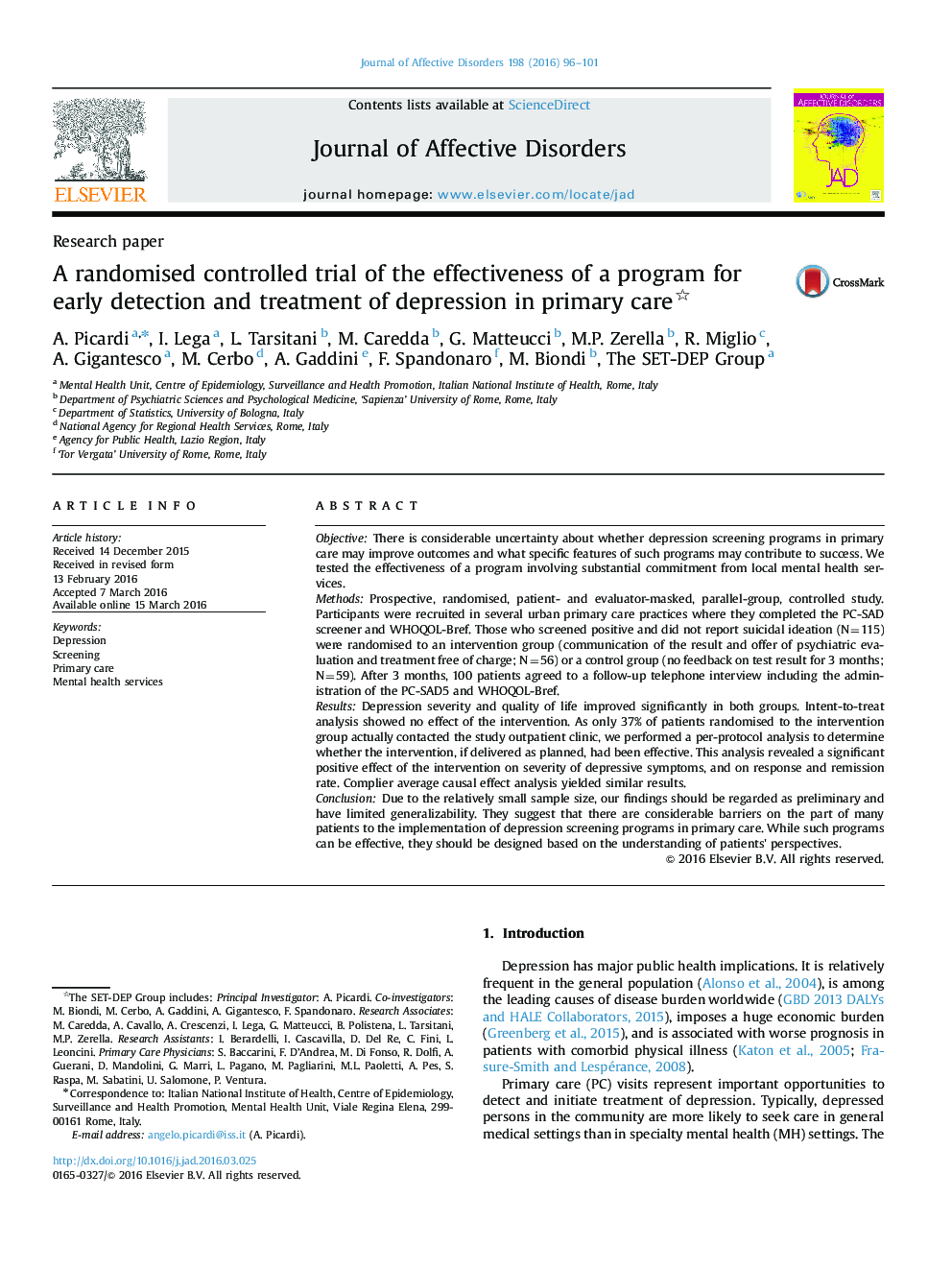| Article ID | Journal | Published Year | Pages | File Type |
|---|---|---|---|---|
| 6230191 | Journal of Affective Disorders | 2016 | 6 Pages |
ObjectiveThere is considerable uncertainty about whether depression screening programs in primary care may improve outcomes and what specific features of such programs may contribute to success. We tested the effectiveness of a program involving substantial commitment from local mental health services.MethodsProspective, randomised, patient- and evaluator-masked, parallel-group, controlled study. Participants were recruited in several urban primary care practices where they completed the PC-SAD screener and WHOQOL-Bref. Those who screened positive and did not report suicidal ideation (N=115) were randomised to an intervention group (communication of the result and offer of psychiatric evaluation and treatment free of charge; N=56) or a control group (no feedback on test result for 3 months; N=59). After 3 months, 100 patients agreed to a follow-up telephone interview including the administration of the PC-SAD5 and WHOQOL-Bref.ResultsDepression severity and quality of life improved significantly in both groups. Intent-to-treat analysis showed no effect of the intervention. As only 37% of patients randomised to the intervention group actually contacted the study outpatient clinic, we performed a per-protocol analysis to determine whether the intervention, if delivered as planned, had been effective. This analysis revealed a significant positive effect of the intervention on severity of depressive symptoms, and on response and remission rate. Complier average causal effect analysis yielded similar results.ConclusionDue to the relatively small sample size, our findings should be regarded as preliminary and have limited generalizability. They suggest that there are considerable barriers on the part of many patients to the implementation of depression screening programs in primary care. While such programs can be effective, they should be designed based on the understanding of patients' perspectives.
